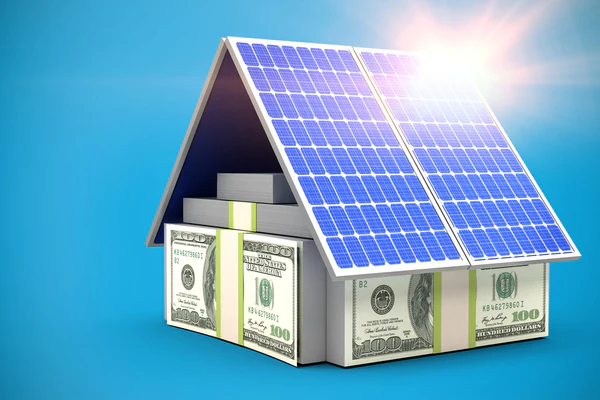Just How Solar Power Can Aid You Save Money and Minimize Your Carbon Footprint
The integration of solar power into your power profile presents a compelling opportunity for both monetary savings and ecological stewardship. As various federal government incentives end up being offered, the concern develops: just how can one efficiently browse the preliminary financial investments and recurring benefits of solar technology to make best use of both economic and environmental gains?
Understanding Solar Energy Cost Savings
While the shift to solar power typically entails a first financial investment, understanding solar energy cost savings is critical for home owners and organizations alike. Solar power systems can considerably decrease electrical power bills by harnessing the sunlight's power, converting into considerable long-lasting monetary benefits. By creating their very own electrical energy, customers lessen dependence on grid power, which goes through fluctuating costs. These savings can gather over time, usually causing a rapid return on financial investment.
In addition, solar energy systems may qualify for various economic rewards, including tax credit histories and refunds, additionally boosting their cost-effectiveness. The schedule of web metering allows customers to offer excess energy back to the grid, producing an extra income stream. These factors add to the total financial savings related to solar energy.

In addition to direct financial savings, solar power uses the included benefit of boosting property value. Homes equipped with solar panels are often a lot more attractive to customers, as they guarantee lower energy costs - Simply Solar Illinois. Understanding these aspects is important for any person taking into consideration solar energy, as it highlights not simply the possible financial gains, yet additionally the broader environmental and financial advantages of adopting renewable resource remedies
Preliminary Prices vs. Long-Term Advantages
When examining solar power, it is vital to weigh the preliminary prices versus the long-lasting advantages. The in advance investment for solar panels, installment, and related equipment can be considerable, often ranging from $15,000 to $30,000, depending on the system dimension and home energy needs. This initial expenditure may prevent some home owners; however, it is critical to think about the potential savings gradually.
As soon as mounted, solar power systems can substantially lower or even get rid of regular monthly electrical power expenses, leading to substantial long-lasting economic benefits. Researches show that property owners can save anywhere from $10,000 to $30,000 over the life expectancy of their planetary system, typically 25 years. In addition, several states provide rewards, tax obligation credit histories, and discounts that can offset first costs, making solar more available.

Minimizing Your Carbon Footprint
Minimizing your carbon footprint is a crucial factor to consider in today's environmentally aware society, and adopting solar energy is one of one of the most reliable techniques to accomplish this goal. Solar energy is a clean, sustainable resource that considerably reduces dependence on fossil fuels, which are major contributors to greenhouse gas exhausts.

Furthermore, the widespread adoption of solar technology motivates the advancement of eco-friendly tasks and sustains advancements in power storage space and efficiency. The even more individuals and companies buy solar power, the greater the cumulative decrease in carbon exhausts, fostering a cleaner ambience for future generations.
Government Motivations and Refunds
Taking on solar power not just benefits the atmosphere yet can also lead to substantial financial cost savings, particularly with the schedule of government motivations and discounts. Different government, state, and regional programs are developed to encourage house owners and services to spend in solar power systems, making the transition much more budget-friendly.
Among one of the most popular motivations is the Federal Financial Investment Tax Obligation Debt (ITC), which allows solar system owners to subtract a considerable percent of the installment costs from their federal tax obligations. This motivation has actually been crucial in decreasing the in advance costs connected with solar power systems. In addition, several states provide their very own tax obligation credit scores, gives, and discounts that can further enhance Homepage savings.
Additionally, some city governments give real estate tax exceptions for solar setups, making sure that home owners do not encounter raised building tax obligations as an outcome of their sustainable energy financial investments. Utility companies might additionally use rewards, consisting of web metering and feed-in tariffs, which allow solar power customers to offer excess power back to the grid.
Choosing the Right Planetary System
Selecting the appropriate planetary system is vital for making best use of power effectiveness and financial advantages. The choice depends upon several variables, including energy demands, budget plan, and offered space. Home owners ought to start by analyzing their electrical energy intake to identify the system size required for optimum performance.
Following, think about the various types of solar technologies readily available. Simply Solar Illinois. Solar (PV) panels are one of the most typical, transforming sunlight straight right into electrical energy, while solar thermal systems focus on home heating water. Each kind has unique benefits depending on individual demands
Budget factors to consider are additionally vital. First setup prices can vary substantially, so it is very important to contrast quotes from numerous service providers and discover financing options. Federal government these details motivations and rebates can even more minimize the financial problem, making planetary systems more easily accessible.
Verdict
In summary, solar power offers a sensible option for accomplishing considerable expense savings while all at once reducing carbon discharges. The preliminary financial investment, though significant, yields considerable long-lasting monetary advantages, with prospective cost savings varying from $10,000 to $30,000 over 25 years. Additionally, the environmental advantages of solar power add to lasting techniques crucial for combating environment change. Government rewards improve the expediency of solar technology adoption, motivating a shift towards a cleaner, much more economically efficient power resource.